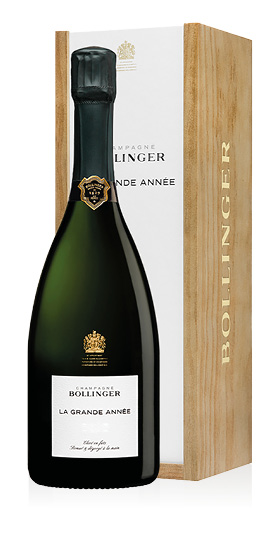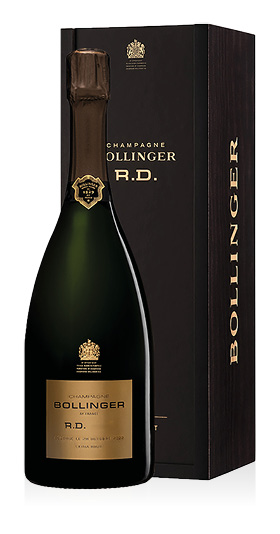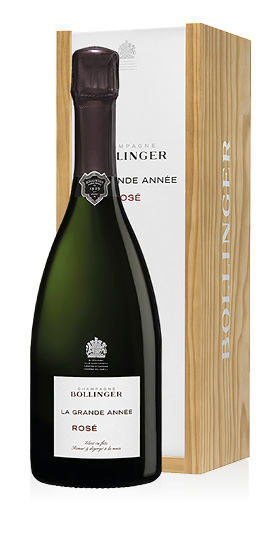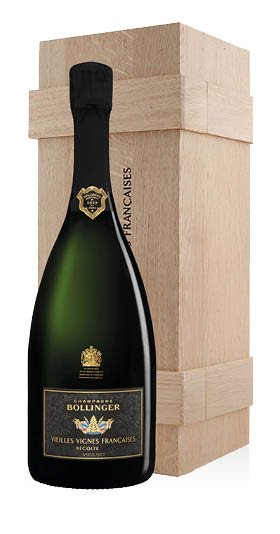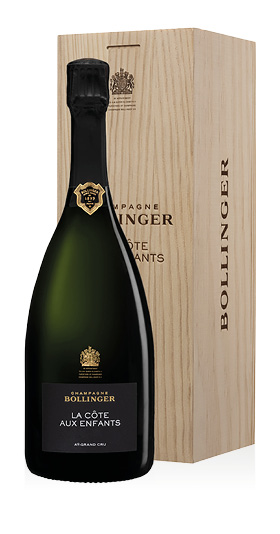Bollinger
Bollinger is the name of the prestigious Champagne house founded in 1829. Bollinger's adventure begins with Athanase de Villermont, a young noble who, after the American War of Independence, inherits a property in the Aÿ area from his family. Having immediately recognized the expressive capacity of the great wines of the region and considering the impossibility of dealing directly with the company, he decides to involve Joseph Bollinger and Paul Renaudin, both sharing a passion for wine and Champagne. On February 6, 1829, the Renaudin-Bollinger & Cie company takes shape with a synergistic distribution of tasks between winemaking and sales activities. The story continues with Joseph's students including Jacques facing the hard task of overcoming the difficult period of the Great War at the turn of the century. In particular Elizabeth de Lauriston-Boubers, wife of Jacques and nicknamed 'Madame Bollinger', will be at the helm of the business after her husband's death. Great successes accompanied the crossing of the Maison Bollinger until 1994 with another descendant of Joseph Bollinger, Ghislain de Montgolfier, who since 2007 has headed the Board of the Union des Maisons de Champagne.
Bollinger Champagne
The Bollinger company has 178 hectares with 85% of vineyards classified as Grand Cru and Premier Cru. Those cultivated with Pinot Noir are located in the areas of Aÿ, Avenay, Tauxières, Louvois and Verzenay; in Cuis we find Chardonnay and in Champvoisy Pinot Meunier. In the creation of refined and elegant Champagnes Bollinger also boasts two particular terrains, the Clos Saint-Jacques and the Chaudes Terres, never affected by phylloxera and very representative heritage for the historical memory of the Maison. Great attention is also dedicated to sustainability with practices of reuse of processing waste and with the reduction in the use of pesticides. Gilles Descôtes, current chef de cave, is responsible for identifying the best grapes to be vinified to maintain the production style and reveal the specific characteristics of the varieties used. It is he who decides the wines to be vinified in old oak barrels according to a practice that tends more and more to disappear in the region and that helps the wines to express their longevity to the maximum. This is in accordance with the use of reserve wines and in the choice of correct proportions to enhance the complexity and elegance that must remain over time. One of all, the Champagne Special Cuvée can well describe the spirit that still animates the Maison: it is an expressive name, conceived in 1911 to replace 'Brut sans année' because it is not so expressive for this Champagne: a cuvée of great structure with 60% of Pinot Noir that ages more than 30 months before being placed on the market.
What sets Champagne Bollinger Special Cuvée apart?
The name Special Cuvée was proposed by an agent of the Maison Bollinger in 1911 to replace the wording 'Brut sans année'. In addition to the particularity relating to the origin of the name, this Champagne ages twice the years provided for by the disciplinary and retains a taste so transversal that it cannot go unnoticed.
What is the price of Bollinger Champagne?
In line with all the other Champagnes, the price of Bollinger can fluctuate between € 50 and € 200 depending on the vintage, if vintage, and on the type.


